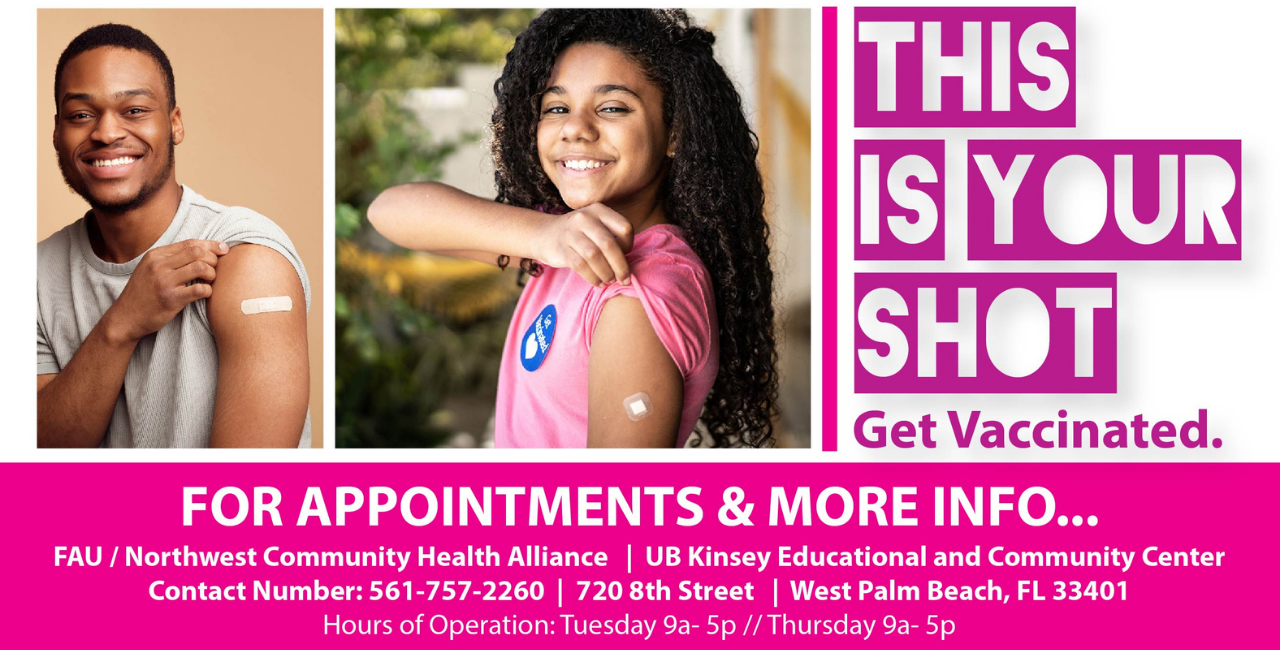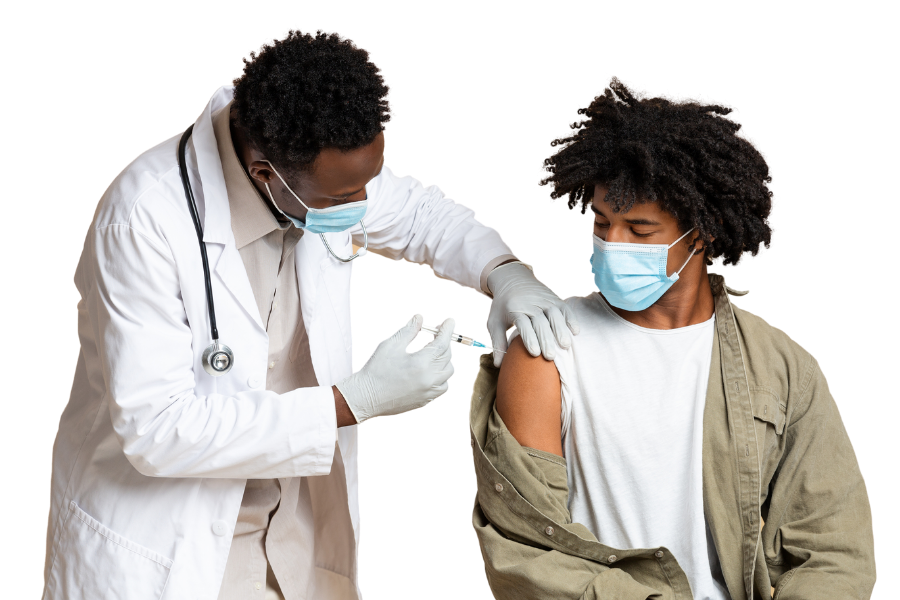
This page is an informative resource that will provide you with information on the latest updates, how to get vaccinated and frequently asked questions related to COVID-19. With the outbreak of COVID-19, we want to ensure our community is aware of the support and resources that is available.

Palm Beach County Vaccination Sites
As of June 8, 2021 (click on each link for more information)
Sign up to get latest news and updates delivered to your inbox.
Frequently Asked Questions
These FAQs are provided by the CDC (Centers for Disease Control and Prevention).
* Approach to Development – Scientists have been working for many years to develop vaccines against viruses like the one that causes COVID-19. This knowledge helped speed up the initial development of the current COVID-19 vaccines.
* Clinical Trials – All vaccines in the United States must go through three phases of clinical trials to make sure they are safe and effective. During the development of COVID-19 vaccines, phases overlapped to speed up the process, but all phases were completed.
* Authorization or Approval – Before vaccines are available to people, the U.S. Food and Drug Administration (FDA) assesses the findings from clinical trials. FDA determined that three COVID-19 vaccines met FDA’s safety and effectiveness standards and granted those vaccines Emergency Use Authorizations (EUAs)external icon. This allowed the vaccines to be quickly distributed to control the pandemic. Before recommending COVID-19 vaccination for children, scientists conducted clinical trials. The FDA gave the Pfizer-BioNTech COVID-19 vaccine emergency authorization to use in children ages 5 years through 15 years old and full approval to use in people ages 16 years and older.
* Manufacturing and Distribution – The U.S. government has invested substantial resources to manufacture and distribute COVID-19 vaccines. This allowed vaccine distribution to begin as soon as FDA authorized each vaccine.
* Tracking Safety Using Vaccine Monitoring Systems – COVID-19 vaccine safety monitoring has been the most intense and comprehensive in U.S. history. Hundreds of millions of people in the United States have received COVID-19 vaccines. Through several monitoring systems, CDC and FDA continue to provide updated information on the safety of these vaccines.
If you are pregnant and have received a COVID-19 vaccine, we encourage you to enroll in v-safe, CDC’s smartphone-based tool that provides personalized health check-ins after vaccination. A v-safe pregnancy registry has been established to gather information on the health of pregnant people who have received a COVID-19 vaccine.
Currently, a booster shot is not recommended for children younger than 16 years old.
Getting sick with COVID-19 offers some protection from future illness with COVID-19, sometimes called “natural immunity.” The level of protection people get from having COVID-19 may vary depending on how mild or severe their illness was, the time since their infection, and their age. No currently available test can reliably determine if a person is protected from infection.
All COVID-19 vaccines currently available in the United States are effective at preventing COVID-19. Getting a COVID-19 vaccine gives most people a high level of protection against COVID-19 even in people who have already been sick with COVID-19. Emerging evidence shows that getting a COVID-19 vaccine after you recover from COVID-19 infection provides added protection to your immune system. One study showed that, for people who already had COVID-19, those who do not get vaccinated after their recovery are more than 2 times as likely to get COVID-19 again than those who get fully vaccinated after their recovery. People who were treated for COVID-19 with monoclonal antibodies or convalescent plasma or people who have a history of multisystem inflammatory syndrome in adults or children (MIS-A or MIS-C) may need to wait a while after recovering before they can get vaccinated. Talk to your doctor if you are unsure what treatments you received or if you have more questions about getting a COVID-19 vaccine.


